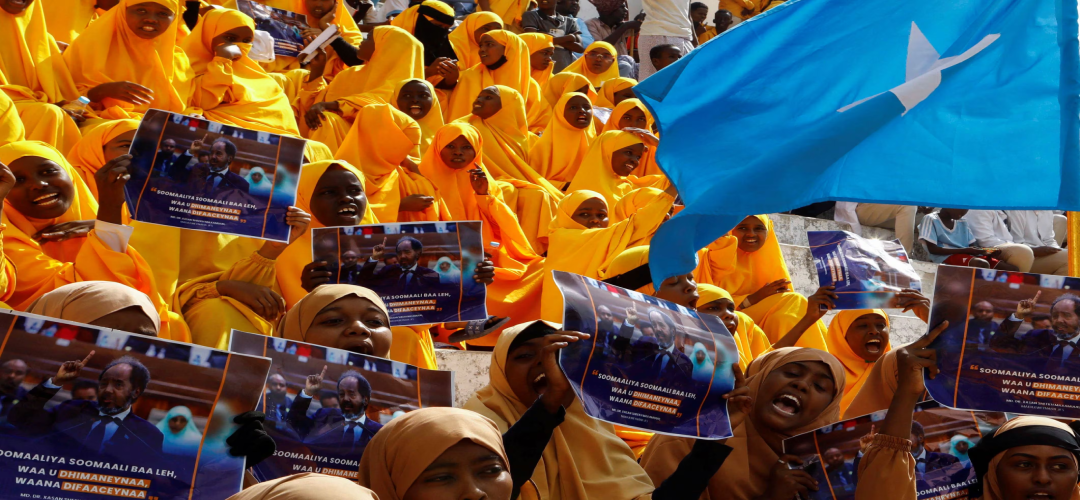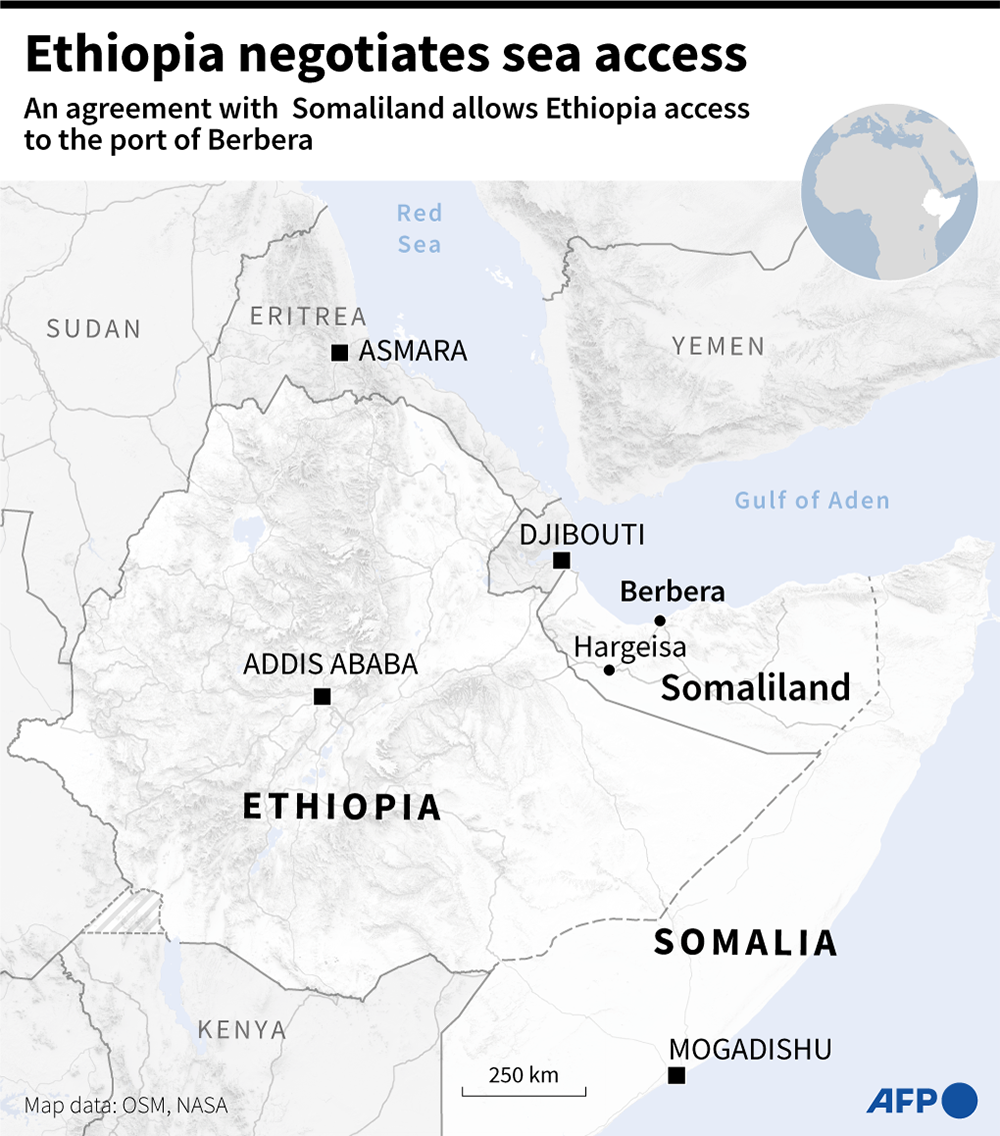A Desperate Deal?
January 20, 2024 | Expert Insights

The recent agreement between Ethiopia and Somaliland has sent reverberations across the region. Last week, Ethiopia and Somaliland, a breakaway state from Somalia, reached a deal that would bring landlocked Ethiopia sea access through Somaliland's Red Sea ports. In exchange, Ethiopia will recognise Somaliland's independence, a move that has riled up Somalia, which claims Somaliland as its northern territory.
The controversial deal has rattled other regional players and triggered tensions in the already volatile Horn of Africa as 2024 begins.
Background
Formerly a British colony, a newly independent Somaliland voluntarily joined Somalia in 1960. However, the union soon ran into trouble. Somaliland went on to wage a decades-long struggle against the Somalian military regime that had Soviet backing. In 1991, it proclaimed its independence after the civil war brought down Siad Barre’s regime in Somalia. Since then, it has been de facto independent with a government and elected parliament but lacking formal international recognition.
Ethiopia, Africa's second most populous country, has coveted sea access since it lost its Red Sea ports when Eritrea seceded in 1991. Ever since, more than 95 per cent of landlocked Ethiopia’s trade goes through a trade corridor with its neighbour Djibouti - for which it pays a costly $1.5 billion as port fees annually to Djibouti.
The memorandum of understanding signed between Ethiopia and Somaliland is ambiguous and yet to be fleshed out. It essentially allows Ethiopia sea access for commercial traffic through Somaliland's coast and could include a lease for a military naval base. Somalia has denounced the deal as an act of aggression on its sovereignty and threatened that it is prepared for war. The AU and the U.S. have called for de-escalating tensions.

Analysis
While Somaliland has enjoyed relative stability over the years, its unrecognised status handicaps it as it struggles to attract investment and revenue. The milestone deal promises to legitimise it as a state and sparks hopes that it could propel other countries to do so in a domino effect.
Domestically, for the Ethiopian government, it could be a chance for Prime Minister Abiy Ahmed to revive his reputation that has taken a toll after his wars in the Tigray region and violent insurgencies in other regions combined with economic distress. The new deal bringing much-sought sea access could win Abiy political gains.
Somalia is internally preoccupied with Al Shabaab, a powerful Al-Qaida affiliate, and is unlikely to attack Ethiopia. Ethiopia, too, has simmering internal conflicts such as secessionist movements, including a group demanding autonomy for Somalis in Ethiopia. It must tread carefully with the deal to avoid igniting these insurgencies.
Regional ripples will likely ensue as countries take sides in the contestation, inflaming existing regional fissures. Just days before the deal, Somalia and Somaliland had engaged in talks where they agreed to resume dialogue after a long stalemate. The deal is likely to throw off such efforts.
Further, Eritrea and Egypt are Ethiopia's key rivals, and both have voiced support for Somalia on the port deal issue. So has Turkey, which is significantly involved in Somalia. Ethiopia and Somalia share a turbulent relationship since a 1967 conflict followed by Ethiopia's 2006 invasion of Somalia to oust Islamists from Mogadishu, which contributed to Somalia's Al-Shabaab insurgency. Ethiopia continues to be one of the leading contributors of troops to the AU peacekeeping force in Somalia, which could be affected by the deal. The port issue is likely to persist in regional dynamics: Ethiopia will likely look for another neighbouring port if the deal doesn't go through.
Assessment
- The deal with Ethiopia carries appeal for a small country chasing international recognition and the accompanying benefits. Yet, Somaliland's deal risks setting off long-running tensions with Somalia and regional neighbours that could threaten even the de facto independence it currently enjoys.
- Ethiopia’s ambitions and its determined pursuit of sea access are being warily watched by its regional neighbours. While neither Somalia nor Ethiopia may be in a position to wage an external conflict, Somalia may garner enough support from other powers to pressure Ethiopia into rethinking the deal, which is still in the incipient stages.
- Many regional countries have voiced concern over the deal, which could sour the actualisation even if it is formally signed. Even worse, it could inflame existing regional differences and could give rise to more bloodletting.








Comments